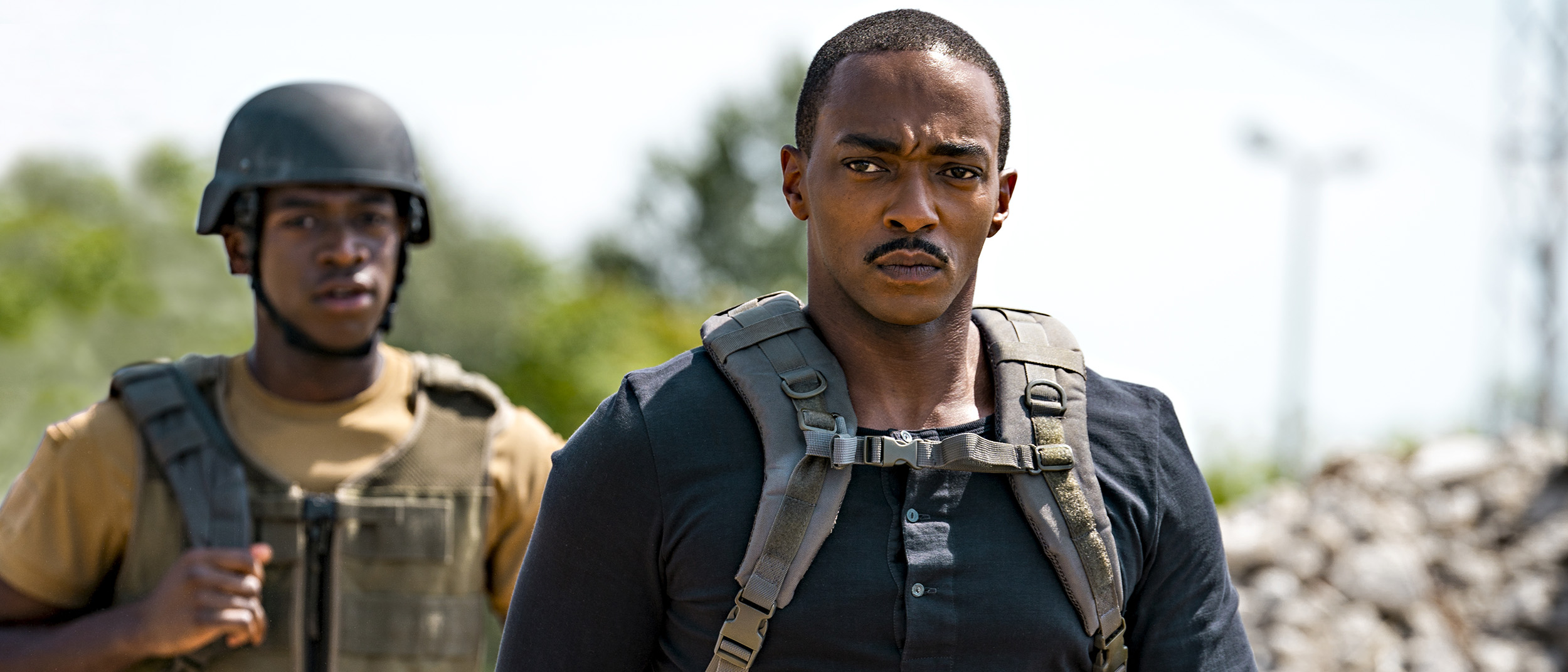What to Watch Verdict
A relatively fun 2 hours of watching things go boom, with the usual cliches about killer robots and robotic humans.
Pros
- +
🤖 Anthony Mackie is great as always.
- +
🤖 The fast pace makes up for a predictable story.
- +
🤖 Michael Kelly makes you love him being a hardass.
Cons
- -
🧨 Of course the day is saved.
- -
🧨 And we all learn a valuable lesson about humanity.
The term "outside the wire" is a pretty simple military turn of phrase. Your base of operations is protected by barbed wire. Anything on the other side of that wire is hostile territory. And thus lays the groundwork for the Netflix movie of the same name.
Outside the Wire marries the usual tropes of humans being their own worst enemies and robots being the only way to save us from ourselves with enough military jargon to make the late Tom Clancy want to come back and show folks how it's done.
It's not the worst way to spend a couple hours, but it's also another movie on Netflix's Top 10 list that makes you wonder why there wasn't anything better in place of it.
Damson Idris is a drone pilot named Harp, based in Nevada. And he's a good one, mindlessly gnawing on gummy bears while he blows up bad guys — mostly bad guys, anyway — from thousands of miles away, never in any actual danger himself. That's a real issue in today's world, and it's good to see it explored, even superficially.
But today Harp has a problem. A few dozen Marines are about to be killed in Eastern Europe, where civil war has broken out and the U.S. is being used as peacekeepers. We have robotic soldiers now, called Gumps. But a couple of Marines have been hit already, and everyone's about to be overrun. Harp can fix that with a Hellfire missile, but it'll take out the wounded Marines who can't get out the way. Harp makes the call himself — against orders — and saves 38 Marines.
The math makes sense, but you don't get to disobey orders without consequences. So Harp is transferred to Eastern Europe — and to the exact area of operations that he was a part of, on the other side of his real-live video game screen. That's part of a program to try to solve the problem of detachment from war. And it turns out he also was personally requested by a certain Capt. Leo.
Leo (the always excellent Anthony Mackie) is an oddball. Other officers don't like him. He's hiding away in some remote part of the base, and Harp has to go find him. "You must have really fucked up if they sent you to Leo," says Col. Eckhart (Michael Kelly). "Follow the music." Eckhart gives Harp one final warning: "He's not like us."
The latest updates, reviews and unmissable series to watch and more!
Leo, it turns out, loves jazz. It also turns out he's an Android, which you'd know if you watched the trailer for the film. (I hadn't, which at least gave the movie one minor "a-ha!" moment.) Only two other people know Leo is a "fourth-generation biotech" prototype. Eckhart is one and Leo is now the other.
Leo has his orders, but he's also got a side gig of doing whatever he has to do to stop a bad man named Victor Koval (Pilou Asbæk from Ghost in the Shell, and Euron Greyjoy in Game of Thrones) from gaining access to old Soviet nuclear weapons that are still in Ukraine. And Leo needs Harp's help to do it. And only Harp can do the job, apparently.
So they all head "outside the wire" — you could make a drinking game out of how many times someone says those three words, which is one of the greater sins of this film. It's not entirely clear what the same group of Marines Harp saved when he got himself in trouble is doing here. But they run into a bunch of militia, and things are about to go really bad when Leo manages to calm everyone down.
There's just something about Leo. He's an Android, but he also seems more human than Harp. One is programmed to feel everything. "Acute sensory perception," he says. The other is programmed to feel nothing. That's readily apparent. Harp is way out of his element out in the field. Leo's smooth talking keeps Harp's head spinning, and somehow manages to defuse any situation.
It's not unusual to see Mackie kicking all kinds of ass as someone in uniform. (Or previously in uniform.) Most recently that's come as Falcon in the Marvel Cinematic Universe. But there's also the second season of the excellent Altered Carbon on Netflix. Or Detroit, the film of the 1967 riots. Or as a cop in the also-excellent Triple 9. But he does something in Outside the Wire that's either the result of some pretty stilted dialog or some clever acting or both. Leo is full of exposition, but that's both for our benefit as a viewer, as well as Harp's benefit as someone who just got in country and doesn't have a clue what's going on. Leo's voice isn't dispassionate, but it's also just a beat slower than you might expect. It's definitely deliberate. It's human, but only just so. Leo walks a fine line between robot and rebel, and Mackie pulls it off.
There's also perhaps just a little bit of MCU self-awareness, and perhaps the smallest of shots at Captain America. "Why would the Pentagon pick my face to represent the United States Marines?", Leo asks Harp. "Why wouldn't they make me a blond-haired, blue-eyed, all-American peckerwood?"
Zing.
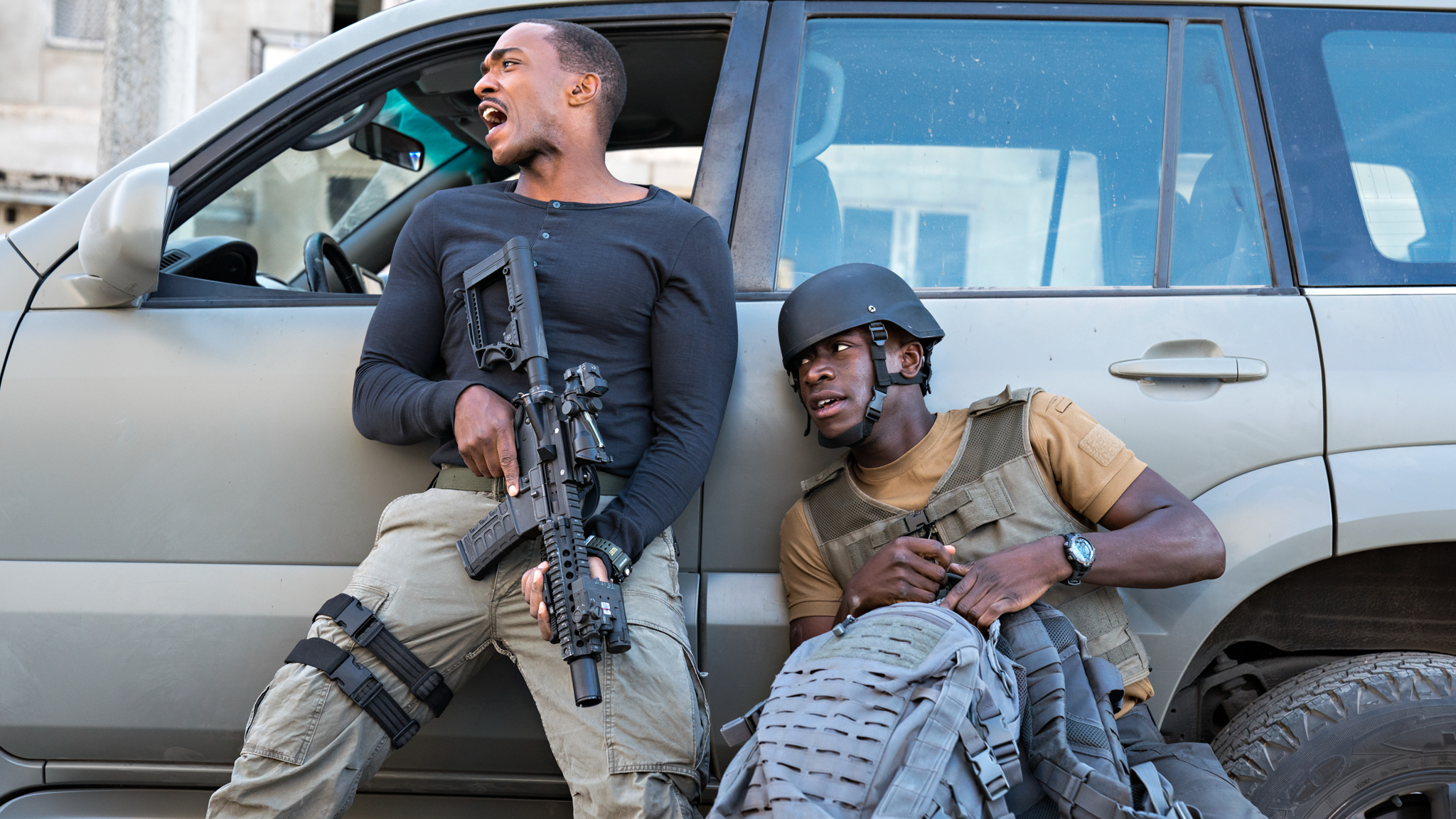
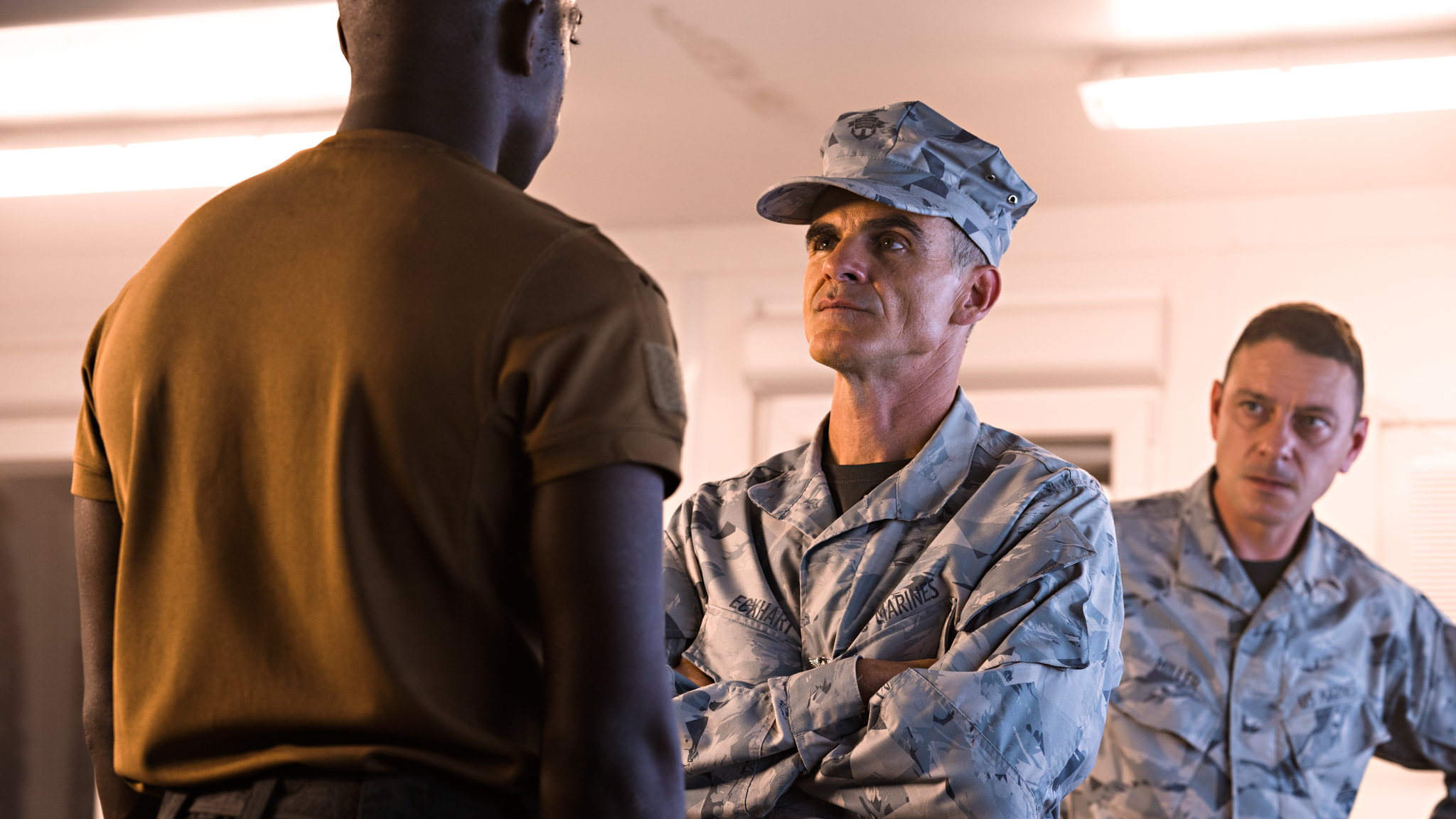
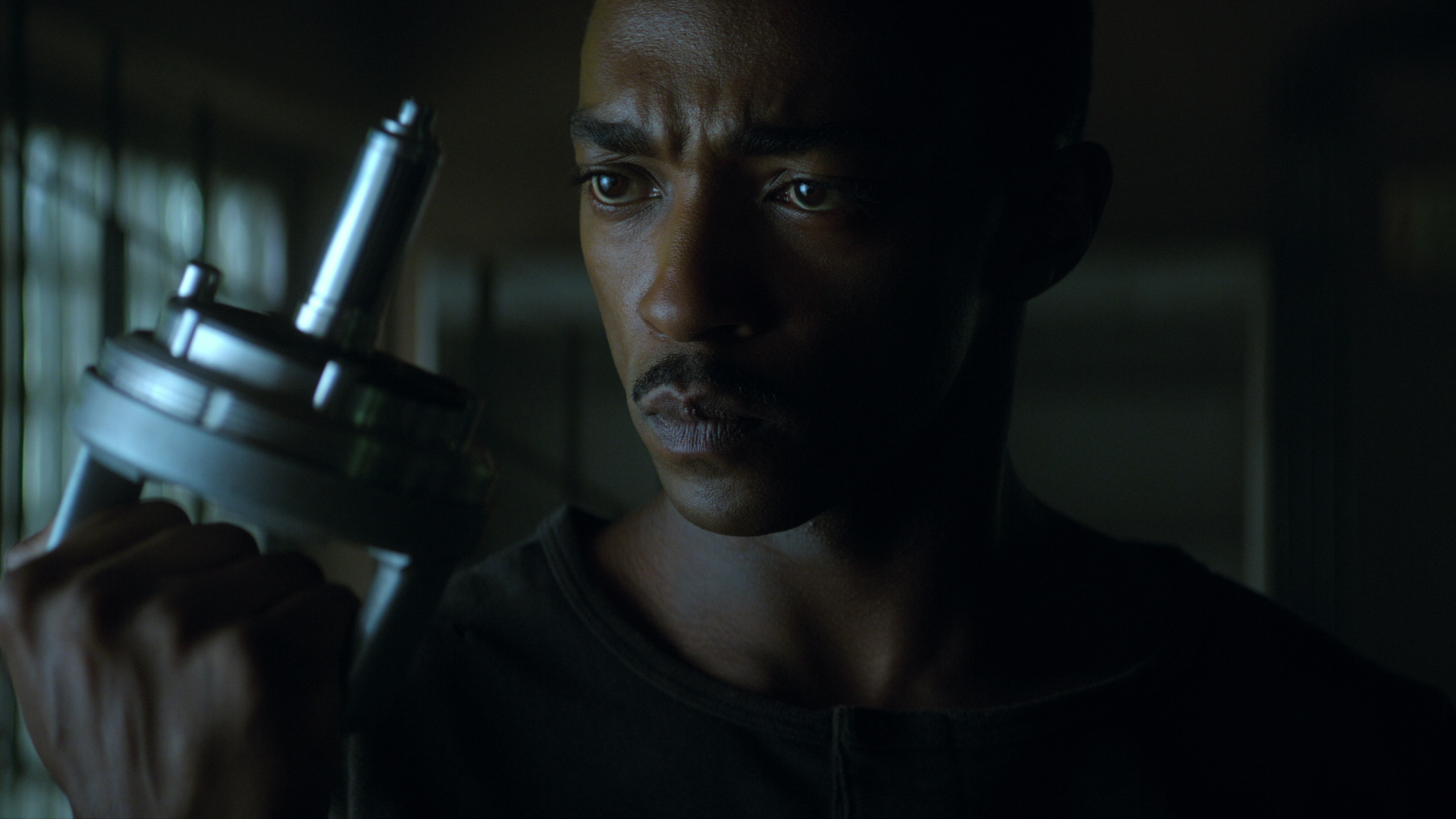
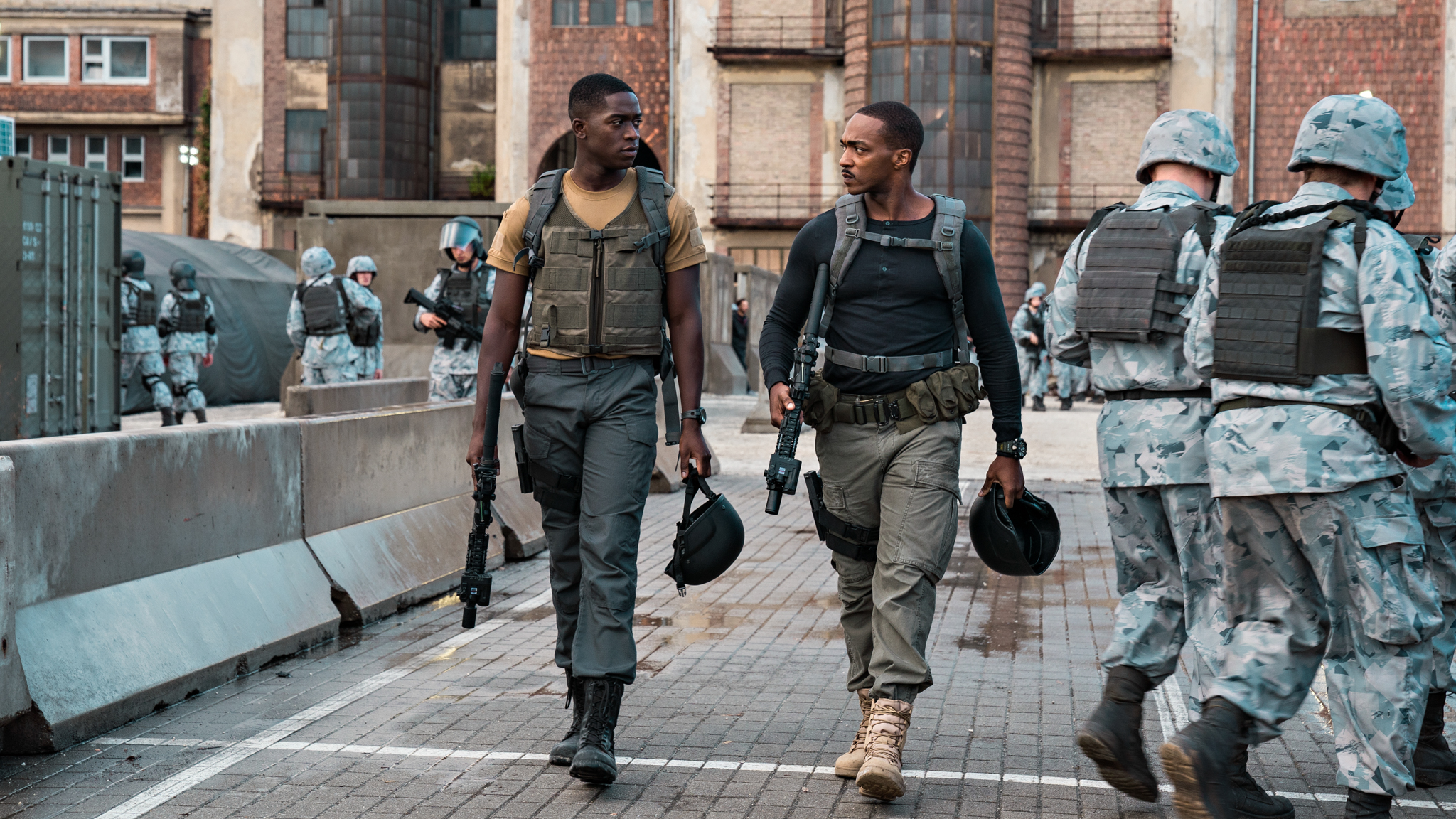
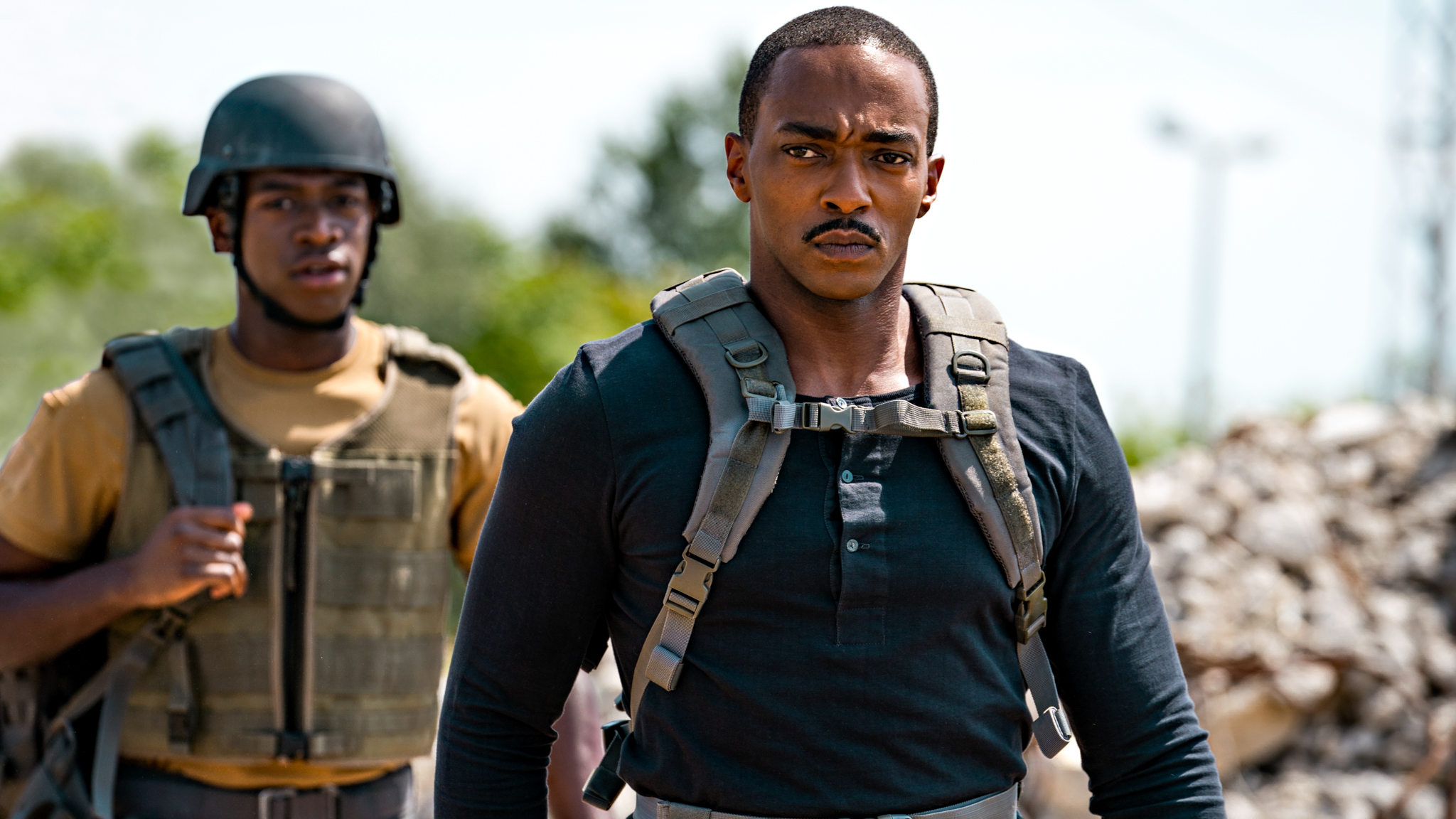
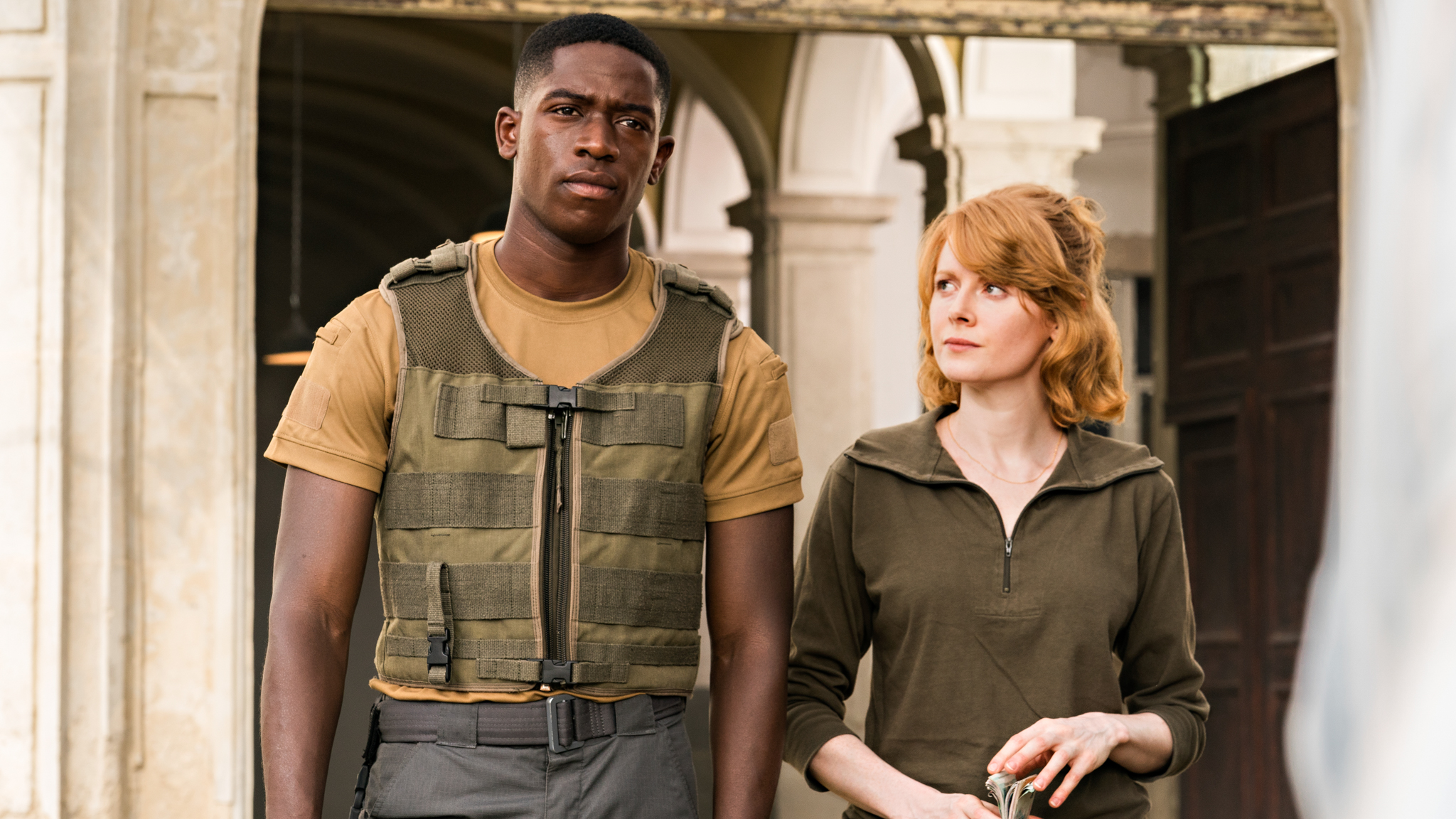
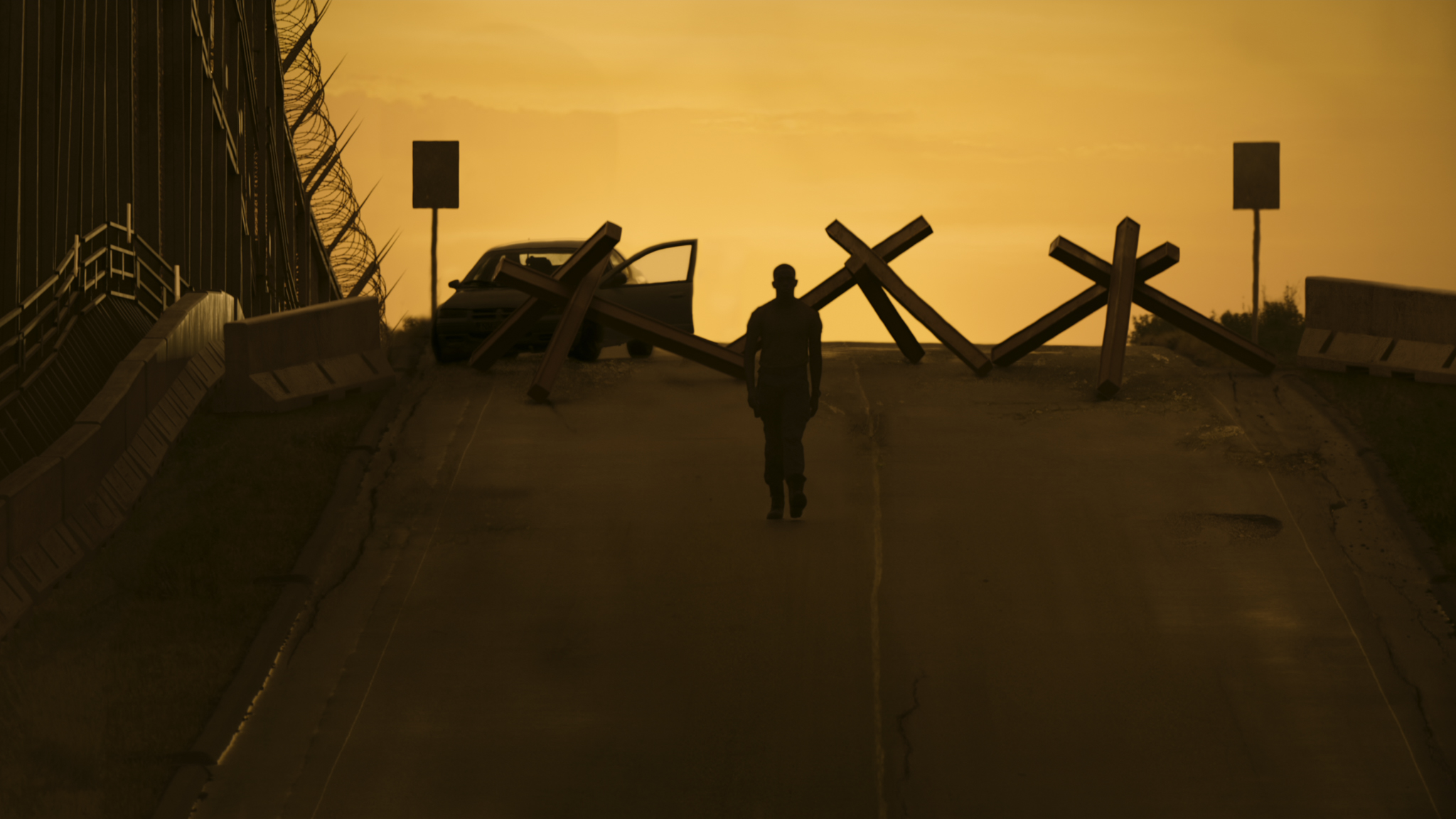
Outside the Wire has one speed and one direction — fast, and forward. Harp and Leo are trying to get the vaccine to some refugees in return for Leo's contact giving information about the location of Victor Koval and some codes he's after to launch intercontinental ballistic missiles that somehow have been kept hidden yet maintained and somehow are still capable of reaching the United States.
That seems simple enough, and we get to see some explosions and watch people shoot guns in the process. And Harp learns what it's like to be a soldier on the ground. Cool.
It turns out, however, that Leo is playing his own game, and that game requires Harp. Harp starts to figure it out, albeit too late. Leo used him while unveiling his evil plan, as one does in situations like this. And now Harp's apparently the only person who can figure out where Leo is going, and what he's going to do, and he's the only person who can stop him — despite being on a base full of Marines who presumably have been doing actual combat a lot longer. And Harp is able to call in some help from his fellow drone pilots back in Nevada over the phone, which is totally a thing that would happen.
And if there wasn't enough foreshadowing, Harp ultimately is going to have to choose between stopping Leo, and calling in a drone strike on them both.
There's not a lot more nuance here. Leo is doing what he believes has to be done for the greater good. "I have to destroy the monster. Destroy myself. My creator. ... I am the face of never-ending war." He's not wrong. And he thinks that Harp, who sacrificed two Marines at the start of the movie to save 38 others, will agree.
Everything ends exactly how you know it would. Sure, there's a little bit of a twist as you realize that the killer robot is, in fact, a killer robot and is going to do what sentient killer robots have done throughout time. But you also know damn well that Harp is going to save the day and go back to his girl.
Because at the end of the day a C-level Netflix movie is still a C-level Netflix movie. Mackie and Idris together are good. The effects are solid. But at the end of the day, with Harp silhouetted by the sun as he walks back through the camp gates (yes, really), we always knew that Harp would do what he thought is right instead. And so he saves the day. And then he heads back to base, back inside the wire.
Phil spent his 20s in the newsroom of the Pensacola (Fla.) News Journal, his 30s on the road for AndroidCentral.com and Mobile Nations and is the Dad part of Modern Dad.
